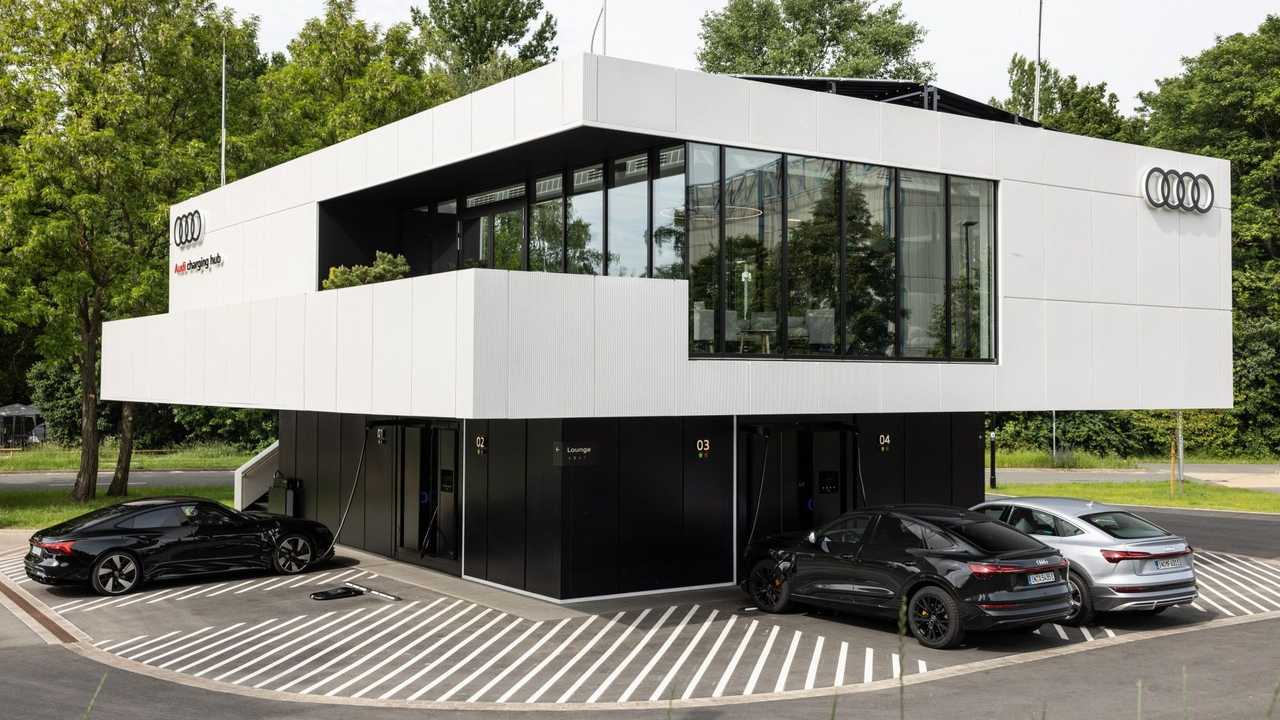Audi has announced ambitions to extend charging stations to more European locations after following a six-month pilot period in Germany.


Local EV drivers have flocked to Audi’s first charging station in Nuremberg, Germany.
Audi has announced a second charging hub test site in downtown Zürich, Switzerland, which will operate in the year’s second half. The pilot phase got predominantly favorable feedback from EV drivers. The location will be located in Zürich’s banking and insurance district. It will be smaller with only two power cubes compared to the Nuremberg charging hub’s three.
Later this year, two more compact Audi charging centers will debut in Salzburg, Austria, and Berlin, Germany, with three more opening in German metropolises in 2023. Audi also plans to open more facilities in German cities by the middle of 2024 and is now seeking strategic locations and on-site partners.
Audi also released data from its first charging station in Nuremberg. The manufacturer registered 3,100 charges at the facility between January and April 2022. It has an average of 24 charges per day at roughly 800 kWh. Surprisingly, 60 percent of charging sessions were from repeat customers, largely city drivers who don’t have access to a charging station at home.
The Audi Charging Hub has a modular layout that allows it to be readily enlarged or shrunk in size. All of these blocks have charge ports as well as energy-storage lithium-ion batteries. The objective is to recover the batteries from outdated electric vehicles. Audi used batteries from earlier prototypes for the first station.
The roofed Audi charging station, which includes a swivel-arm charger, a lounge, and a concierge, received excellent reviews from users. Customers also made extensive use of other services such as the micro-mobility battery exchange station, catering, and food delivery.

Audi Charging Hub concept in Nuremberg, Germany
With the Nuremberg site offering 2.45 mWh of interim storage and six HPC charging points with up to 320 kW, the Audi charging hub’s battery-storage solution enables sustainable quick-charging infrastructure where the electric grid is insufficient. It has only a 200 kW connection to the low-voltage network which requires continuously filling the storage modules.